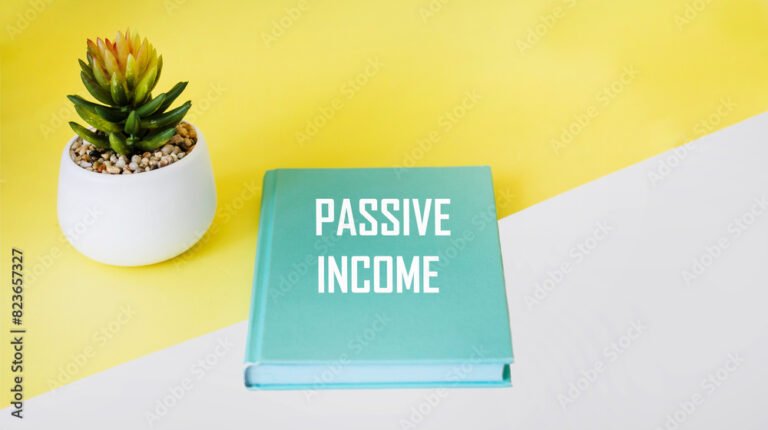
Views: 0
Life insurance is more than just a financial product—it’s a security net that provides peace of mind and future stability for you and your loved ones. The benefits of having life insurance stretch far beyond simply covering funeral costs. It offers financial protection, ensures long-term savings, and plays a vital role in estate planning. Whether you are just starting out or are well-established, life insurance is a critical tool for financial security. In this article, we will explore the multiple benefits of life insurance and why it is a wise decision to invest in a policy tailored to your needs.
1. Financial Security for Your Loved Ones
The primary reason most people purchase life insurance is to provide financial security to their family in the event of their untimely death. A life insurance policy ensures that your dependents, such as a spouse, children, or other family members, will receive a death benefit, helping them manage everyday expenses such as mortgage payments, utility bills, and education costs. In essence, life insurance is about safeguarding your family’s standard of living after you’re gone.
Why This Matters
Without a life insurance policy, your family may struggle to maintain their financial footing. The death benefit provided by life insurance offers protection from the uncertainty that could arise from the sudden loss of an income earner. This financial cushion can cover debts such as car loans, credit cards, and even student loans, preventing your loved ones from becoming burdened with these financial obligations.
2. Covering Funeral Costs and Final Expenses
One of the most immediate costs your family will face after your death is funeral expenses, which can range from $7,000 to $12,000 or more. A life insurance policy can alleviate this burden by covering these final costs, allowing your family to focus on the grieving process rather than being overwhelmed with financial strain.
Additional Final Expenses
Life insurance policies can also be used to cover other final expenses like medical bills or probate fees, helping your family avoid the stress of unpaid debts. In this way, life insurance acts as a comprehensive safety net, not just for funeral costs, but for the various expenses that can arise unexpectedly.
3. Building Cash Value with Permanent Life Insurance
While many are familiar with the concept of term life insurance, permanent life insurance policies (such as whole life or universal life insurance) come with a cash value component that grows over time. This means that in addition to the death benefit, these policies can also serve as an investment vehicle.
How Cash Value Works
The cash value of a permanent life insurance policy accumulates on a tax-deferred basis, which means you don’t have to pay taxes on the gains as long as they stay within the policy. You can borrow against this cash value or even withdraw it during your lifetime for major expenses such as home repairs, college tuition, or unexpected emergencies. This added benefit makes permanent life insurance an appealing option for those looking to combine insurance protection with long-term savings.
4. Tax Benefits
Life insurance offers several tax advantages that can be beneficial to both the policyholder and the beneficiaries. For instance, the death benefit paid out to beneficiaries is generally income tax-free, which means they can use the full amount to cover necessary expenses.
Tax-Deferred Growth
The cash value component of a permanent life insurance policy grows on a tax-deferred basis, meaning you won’t pay taxes on any earnings unless you withdraw the money. This makes life insurance a strategic financial tool for individuals looking to minimize their tax burden while still accumulating wealth over time.
5. Estate Planning and Wealth Transfer
For those with substantial assets, life insurance plays a pivotal role in estate planning. A life insurance policy ensures that your heirs receive a portion of your wealth without the complications of probate. Additionally, some policies can help cover estate taxes, so your heirs aren’t forced to sell assets like homes or businesses in order to meet tax obligations.
Equalizing Inheritances
Life insurance can also be used to ensure fairness in estate distribution. For example, if one child is set to inherit a business while the other does not, a life insurance policy can provide the second child with an equitable financial gift, preventing disputes and ensuring harmonious estate planning.
6. Peace of Mind and Reduced Stress
Perhaps one of the most understated but significant benefits of life insurance is the peace of mind it provides. Knowing that your loved ones will be taken care of financially, regardless of what happens to you, brings immeasurable comfort. Life insurance helps reduce stress by ensuring that your family won’t have to worry about money during a time of grief.
Planning for the Unexpected
Life is unpredictable, and while no one likes to think about the possibility of passing away unexpectedly, having a life insurance policy in place helps mitigate the financial impact of such events. This forward-thinking approach allows you and your family to focus on living life to the fullest, secure in the knowledge that you are protected against life’s uncertainties.
7. Supplementing Retirement Income
If you have a permanent life insurance policy, you can use its cash value to supplement your retirement income. Since the cash value grows on a tax-deferred basis, it can serve as a source of funds during your retirement years. You can either withdraw funds or take a loan against the cash value, providing a steady stream of income when you need it most.
Maximizing Your Retirement Strategy
In conjunction with other retirement planning tools like 401(k)s or IRAs, life insurance can enhance your overall retirement strategy by offering additional liquidity. It can also serve as a backup plan in case your other investments underperform, giving you more financial flexibility in retirement.
Conclusion: A Lifelong Financial Tool
Life insurance is not just about providing for your family in the event of your death—it is a lifelong financial tool that offers numerous benefits, from covering final expenses to providing tax-deferred savings and even supplementing retirement income. Whether you opt for term life insurance for straightforward coverage or a permanent policy for long-term financial growth, life insurance is an essential part of a well-rounded financial plan.






